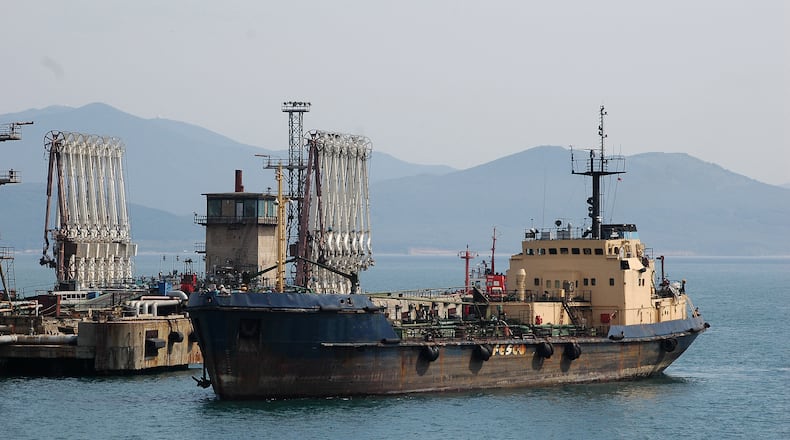Some of the highest profile U.S. companies — along with a handful in Georgia — curtailed or suspended business in Russia because of its attack on Ukraine.
But as Gov. Brian Kemp announced that Georgia would divest its investment and pension money from Russia, most Georgia companies contacted have expressed caution or ducked a reporter’s inquiries about their actions. Most were reluctant to even discuss their economic entanglements in Ukraine or Russia, and if they do, it’s mostly to say they are warily watching.
While neither Russia nor Ukraine is one of the state’s major trading partners, hundreds of millions of dollars pass each year between the two and the state of Georgia, involving financial subsidiaries, manufacturing plants and marketing ventures.
The invasion has drawn widespread condemnation and triggered financial sanctions from the United States and its European allies. In the United States, opposition to the war has been largely bi-partisan.
Businesses pulling back or shutting off dealings in Russia include BP, Apple, Boeing, Ford, Airbus and Texas-based ExxonMobil, which said it would walk away from $4 billion in oil and gas assets. In Georgia, Atlanta-based Delta Air Lines suspended its partnership with Russian national airline Aeroflot, and Sandy Springs-based UPS has halted shipments to Russia.
Coca-Cola Company, Atlanta’s most global brand, declined comment, but the company’s bottler in Ukraine temporarily closed its operations. In Russia, Coke’s bottler has announced no change in its roughly 7,000-employee operations.
While Pepsi was first into the Russia market, Coca-Cola has pushed hard to catch up. The company has invested more than $6.2 billion in its Russia business, according to an economic analysis on its web site.
The iconic Atlanta company can be very low key when it seeks to avoid ruffling political feathers. In the run-up to the recent Olympics, for example, Coke sidestepped calls to speak out to avoid angering the Chinese government, which has been criticized for its treatment of minorities.
Duluth-based AGCO, which makes agricultural equipment and systems, said in a statement to The Atlanta Journal-Constitution that the company has 50 employees in Ukraine and hopes they can keep working.
“While Russia and Ukraine combined only represented 2% of our sales in 2021, Ukraine and Russia together represent a significant portion of the world’s wheat and corn exports,” AGCO said. “It’s essential to keep their farmers farming to ensure this humanitarian crisis does not become a hunger crisis.”
Norcross-based OFS has a plant that makes fiber-optic cable in Voronezh in southwestern Russia, about 320 miles from Moscow. The company declined comment.
Atlanta-based Fleetcor, which handles financial payments, has about 600 employees working in Russia. The company has “the priority of supporting our employees and their families while also minimizing disruptions to our customers,” said a company spokesman.
In contrast, Atlanta-based King & Spalding closed its Moscow office in 2021. The huge law firm did not respond to questions about whether it still has Russian clients.
Last year, the state exported $146.02 million in goods to Russia and $198.89 million in goods to Ukraine, according to Mary Waters, the state’s deputy commissioner for international trade.
The state had $234.8 million in imports from Russia and $24.99 million worth of goods came from Ukraine, she said. “International business remains a key element in Georgia’s economy.”
Georgia’s top exports to Russia were civilian aircraft, vehicles, aluminum waste, wood pulp and combustion piston engines. The top imports from Russia were petroleum oil, plywood, crustaceans, insulated optical fiber cables and spark plugs, Waters said.
While significant, that trade is about 3% of Georgia’s total. The department of economic development does not have a presence in Russia or Ukraine, but does have operations elsewhere in Europe, Waters said.
About the Author
The Latest
Featured



